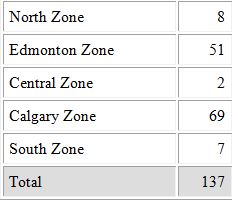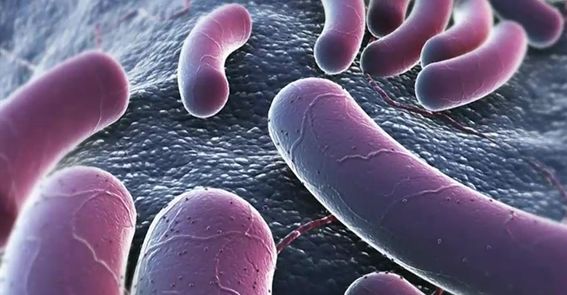Edmonton – Alberta Health Services says it hasn’t identified the cause of the outbreak of E. coli in the province.

“We are actively investigating the cause of this. We aren’t certain what the source is right now,” said Dr. Chris Sikora, a medical officer of health with AHS.
The number of E. Coli cases in Alberta is now up to 137.
In the Edmonton Zone, 51 cases have been reported, compared to 20 cases in all of 2013.

A total of 23 people have been hospitalized across the province including nine in Edmonton and eight in Calgary.
READ MORE: 48 cases of E. coli in Edmonton, source unknown

Get weekly health news
E. Coli is a germ that lives in the digestive tracts of humans and animals.
Most forms of E. coli are harmless, but some can cause bloody diarrhea, and severe anemia or kidney failure, which can lead to death. Other strains of the germ can cause urinary infections or other infections.
You get an E. coli infection by coming into contact with the feces, or stool, of humans or animals. This can happen when you drink water or eat food that has been contaminated by feces.
To reduce your risk of E. coli, AHS recommends the following:
- Wash your hands with hot, soapy water often, including after you go to the washroom, before you prepare food, after you touch raw meat, and after you change diapers.
- Cook beef to at least 71 °C (160 °F).
- Thoroughly wash vegetables and fruits before eating.
- Thoroughly wash all kitchen tools and surfaces that have touched raw meat.
- Use only pasteurized milk, dairy and juice products.
- Use only treated, or chlorinated, drinking water.
- When you travel to countries that may have unsafe drinking water, don’t use ice or drink tap water, and avoid consuming raw fruits and vegetables, except those with skin that you peel yourself.
For more information, visit Alberta Health Service’s website.






Comments